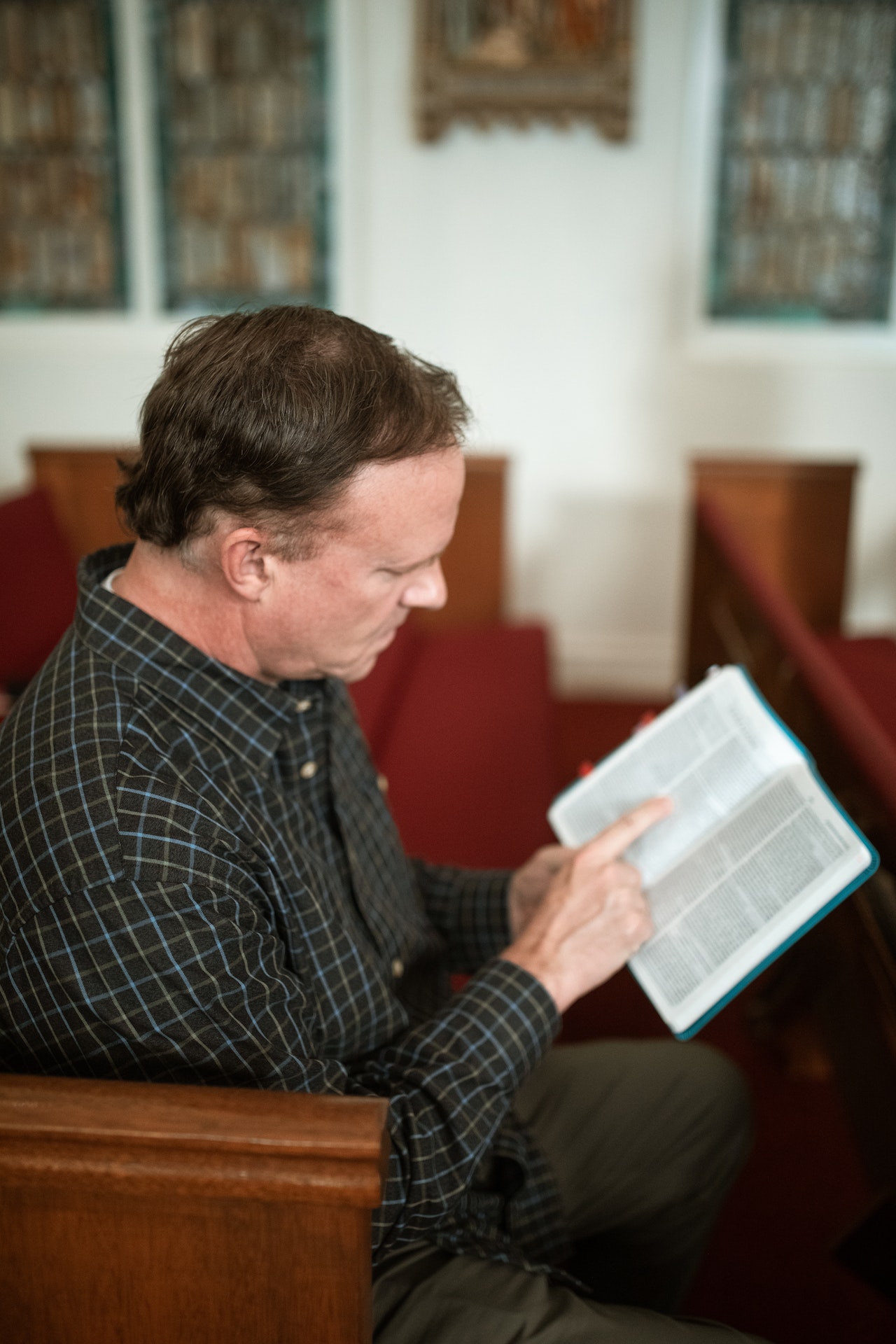Pentecostal beliefs on birth control vary among different denominations and individual adherents. While some Pentecostal groups may discourage or even prohibit the use of birth control methods, others may allow it as a personal decision. It is important to note that beliefs and practices can differ within the Pentecostal movement, and individual perspectives may also vary.
Table of Contents
The Beliefs of Pentecostals Regarding Birth Control
Do Pentecostals believe in birth control? This is a question that often comes up when discussing the beliefs of Pentecostals. Pentecostalism is a branch of Christianity that places a strong emphasis on the Holy Spirit and the gifts of the Spirit. It is known for its lively worship services and belief in the power of prayer. But when it comes to birth control, what do Pentecostals believe?
To understand the beliefs of Pentecostals regarding birth control, it is important to first understand their overall view on sexuality. Pentecostals believe that sex is a gift from God and should be enjoyed within the confines of marriage. They believe that sex is not only for procreation but also for the expression of love and intimacy between a husband and wife. This belief is rooted in the biblical teachings on marriage and sexuality.
When it comes to birth control, Pentecostals have a range of beliefs. Some Pentecostals believe that birth control is a personal decision that should be made by each individual couple. They believe that couples should prayerfully consider their family size and make a decision that is in line with their own personal convictions and circumstances. These Pentecostals may use birth control methods such as condoms, hormonal contraceptives, or natural family planning methods.
On the other hand, there are Pentecostals who believe that birth control is not in line with God’s plan for marriage and family. They believe that God is the author of life and that it is not our place to interfere with his plans. These Pentecostals may choose to rely on prayer and trust in God’s timing when it comes to having children. They may also view children as a blessing from God and believe that it is their duty to be open to having as many children as God chooses to bless them with.
It is important to note that the beliefs of Pentecostals regarding birth control can vary from individual to individual and from church to church. While some Pentecostal churches may have a specific stance on birth control, others may leave the decision up to the individual couple. Ultimately, the decision on whether or not to use birth control is a personal one that should be made in consultation with one’s spouse and with prayerful consideration.
Regardless of their beliefs on birth control, Pentecostals place a strong emphasis on the importance of family and the sanctity of marriage. They believe that marriage is a lifelong commitment between a man and a woman and that the family unit is the foundation of society. They believe that children are a gift from God and should be raised in a loving and nurturing environment.
In conclusion, the beliefs of Pentecostals regarding birth control can vary. Some Pentecostals believe that birth control is a personal decision that should be made by each individual couple, while others believe that it is not in line with God’s plan for marriage and family. Regardless of their beliefs, Pentecostals place a strong emphasis on the importance of family and the sanctity of marriage.
Understanding the Role of Family Planning in Pentecostalism

Do Pentecostals believe in birth control? This is a question that often comes up when discussing the role of family planning in Pentecostalism. While there is no one-size-fits-all answer, it is important to understand the various perspectives within the Pentecostal community.
First and foremost, it is essential to recognize that Pentecostalism is a diverse movement with a wide range of beliefs and practices. There is no central authority or governing body that dictates what all Pentecostals should believe. As a result, individual Pentecostals may have different views on birth control based on their personal interpretation of scripture and their cultural context.
Some Pentecostals believe that birth control is against God’s plan for procreation. They argue that the Bible encourages married couples to be fruitful and multiply, and that using contraception interferes with this divine purpose. For these individuals, the idea of intentionally preventing pregnancy goes against their understanding of God’s will.
On the other hand, there are Pentecostals who see birth control as a responsible and practical choice for couples. They believe that God has given humans the ability to make decisions about their reproductive health and that using contraception is a way to exercise this responsibility. These individuals may argue that family planning allows couples to better care for the children they do have and to provide for their physical, emotional, and spiritual needs.
It is also worth noting that cultural factors can influence Pentecostal views on birth control. In some societies, large families are highly valued, and having many children is seen as a sign of blessing and prosperity. In these contexts, Pentecostals may be more likely to oppose birth control. Conversely, in societies where resources are limited and the cost of raising children is high, Pentecostals may be more open to the idea of family planning.
Ultimately, the decision to use birth control is a personal one for Pentecostals, just as it is for individuals of any faith or belief system. It is important to respect the diversity of opinions within the Pentecostal community and to avoid making sweeping generalizations.
In conclusion, the question of whether Pentecostals believe in birth control does not have a simple answer. Different Pentecostals hold different views on this issue, based on their interpretation of scripture, cultural context, and personal beliefs. Some Pentecostals see birth control as contrary to God’s plan for procreation, while others view it as a responsible choice for couples. It is crucial to approach this topic with an open mind and to respect the diversity of perspectives within the Pentecostal community.
Exploring the Controversies Surrounding Birth Control in Pentecostal Communities
Do Pentecostals believe in birth control? This is a question that has sparked much debate and controversy within Pentecostal communities. While there is no one-size-fits-all answer, it is important to explore the various perspectives and beliefs surrounding this topic.
One of the main reasons why birth control is a contentious issue among Pentecostals is the belief in the sanctity of life. Many Pentecostals view children as a blessing from God and believe that it is their duty to procreate. They argue that using birth control goes against God’s plan for their lives and interferes with the natural process of conception.
On the other hand, there are Pentecostals who do believe in using birth control. They argue that responsible family planning is not only acceptable but also necessary in certain situations. They believe that it is important to consider factors such as financial stability, emotional readiness, and the ability to provide for the needs of a child before deciding to conceive.
It is worth noting that the stance on birth control can vary among different Pentecostal denominations and even among individual churches within the same denomination. Some churches may have more conservative views and discourage the use of birth control, while others may take a more liberal approach and leave the decision up to the individual or couple.
Another factor that influences the beliefs surrounding birth control in Pentecostal communities is the interpretation of biblical teachings. Some Pentecostals believe that the Bible condemns the use of birth control, citing passages that emphasize the importance of being fruitful and multiplying. They argue that any form of contraception goes against God’s command to be fruitful.
However, there are also Pentecostals who interpret the Bible differently and believe that it does not explicitly condemn the use of birth control. They argue that the Bible does not provide specific guidance on this issue and that it is up to individuals to make informed decisions based on their own circumstances and convictions.
In recent years, there has been a shift in attitudes towards birth control within Pentecostal communities. With advancements in medical technology and a greater understanding of reproductive health, many Pentecostals are becoming more open to the idea of using birth control as a means of responsible family planning.
Ultimately, the decision to use birth control is a personal one that should be made in consultation with one’s spouse, pastor, and prayerfully seeking God’s guidance. It is important for individuals to consider their own beliefs, values, and circumstances when making this decision.
In conclusion, the question of whether Pentecostals believe in birth control is a complex and multifaceted one. While there are those who believe that birth control goes against God’s plan for their lives, there are also those who see it as a responsible and necessary choice. The interpretation of biblical teachings and individual convictions play a significant role in shaping these beliefs. As attitudes towards birth control continue to evolve, it is important for Pentecostals to engage in open and respectful dialogue on this topic.
The Impact of Pentecostal Teachings on Reproductive Health Choices
Do Pentecostals believe in birth control? This is a question that often comes up when discussing the impact of Pentecostal teachings on reproductive health choices. Pentecostalism is a branch of Christianity that places a strong emphasis on the Holy Spirit and spiritual gifts. It is known for its lively worship services and belief in the power of miracles. But when it comes to matters of family planning, the teachings of Pentecostal churches can vary.
Some Pentecostal denominations take a strict stance against the use of birth control. They believe that it interferes with God’s plan for procreation and that couples should trust in God to determine the size of their families. These churches often promote abstinence as the only acceptable method of birth control, encouraging couples to rely on prayer and faith to prevent unwanted pregnancies.
However, it is important to note that not all Pentecostal churches hold this view. Many Pentecostal denominations recognize the importance of responsible family planning and support the use of birth control methods. They believe that God has given humans the ability to make choices and that it is up to each individual couple to decide what is best for their family.
In fact, some Pentecostal churches actively promote the use of natural family planning methods, which involve tracking a woman’s menstrual cycle to determine when she is most fertile. This method is seen as a way to work with God’s natural design for reproduction while still allowing couples to make informed decisions about when to have children.
The impact of Pentecostal teachings on reproductive health choices can be seen in the experiences of individual church members. For some, the belief that birth control is against God’s will can lead to feelings of guilt and shame if they choose to use contraception. They may feel pressure from their church community to have large families and may struggle with the decision to limit the number of children they have.
On the other hand, those who attend Pentecostal churches that support the use of birth control may feel empowered to make decisions about their reproductive health that align with their own personal beliefs and values. They may find comfort in knowing that their church supports their choices and that they are not alone in their decision to use contraception.
It is also worth noting that the impact of Pentecostal teachings on reproductive health choices can extend beyond individual church members. In some countries where Pentecostalism is prevalent, such as parts of Africa and Latin America, the influence of Pentecostal churches on reproductive health policies can be significant. These churches may advocate for policies that restrict access to contraception and abortion, which can have a profound impact on the reproductive health and rights of women in these communities.
In conclusion, the question of whether Pentecostals believe in birth control is not a simple one. While some Pentecostal denominations take a strict stance against the use of contraception, others support responsible family planning and recognize the importance of individual choice. The impact of Pentecostal teachings on reproductive health choices can vary greatly depending on the specific beliefs and practices of each church. Ultimately, it is up to each individual and couple to navigate these teachings and make decisions about their own reproductive health that align with their own beliefs and values.
Conclusion
Pentecostal beliefs on birth control vary among individuals and denominations. Some Pentecostals may oppose the use of birth control due to their interpretation of biblical teachings, while others may have more permissive views. Ultimately, the beliefs on birth control within the Pentecostal community can differ.
For licensing reasons, we must provide the following notice: This content was created in part with the help of an AI.


